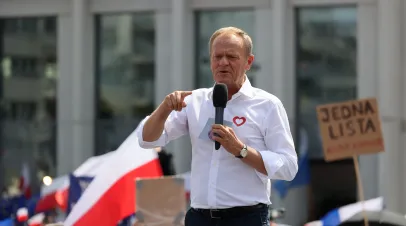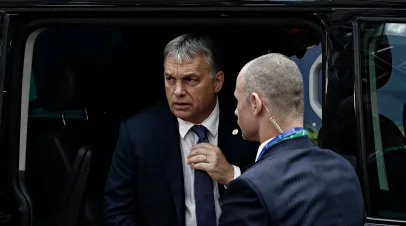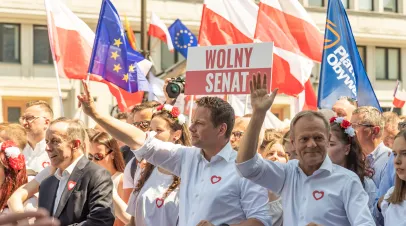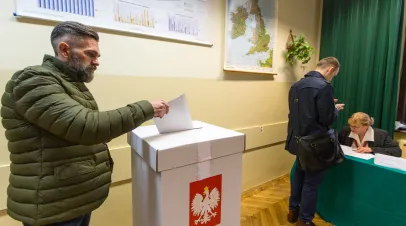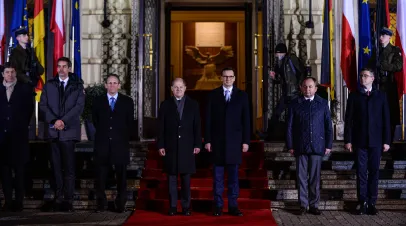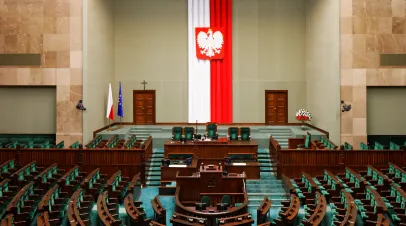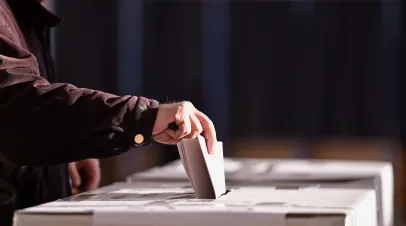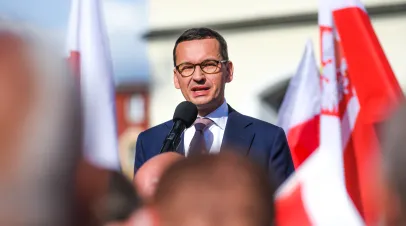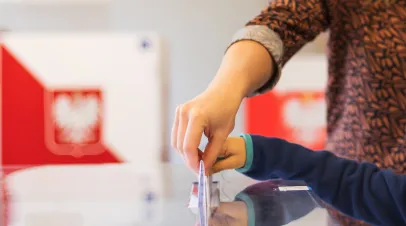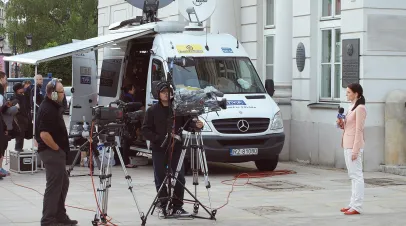Polish General Election 2023
Poland's October 15 elections were the most consequential for the country since 1989. The outcome had and continues to have far-reaching implications for its relations with the EU and the United States, the future of Poland's democracy, and the country's support for Ukraine’s war effort.
Related Programs
Program Experts
“
Leading security and defense expert, Michal Baranowski, told the Associated Press news agency that Poland gave Ukraine what it could early in the war. With no plans for incoming shipments soon, Baranowski doesn't see Ukraine's fighting capabilities threatened in the near future — but still, he considers Polish Prime Minister Mateusz Morawiecki's comments troubling for Kyiv as it seeks to shore up Western support in the war.
The message is very bad, both for Poland's reputation but also because Poland has been one of the chief advocates of military aid to Ukraine. Saying Poland will not be sending more weapons means that Poland can no longer play this role. ”
The message is very bad, both for Poland's reputation but also because Poland has been one of the chief advocates of military aid to Ukraine. Saying Poland will not be sending more weapons means that Poland can no longer play this role. ”
“
It is not in the Polish national interest to stop arms deliveries to Ukraine. The prime minister's remarks mainly indicate that he is keen to focus on replenishing the country's domestic supply of weapons because Poland no longer has the resources and is in need of a major weapons replenishment process which is going to take a long time ... [But] this is not a political declaration about stopping arms to Ukraine.
There is also a national election coming up. So, there is no doubt that the prime minister, being on television, was campaigning for his own voter base. The campaign is extremely dirty and politicians, including the ruling PiS party, are using Polish farmers to win votes and openly saying that the number one interest is Polish farmers. But I do think that will go away even for the ruling party after the election campaign.
Poland is a very important transit hub for Ukraine and I do hope the recent remarks, even over weapons, were just emotional. A huge number of weapons [destined for] Ukraine also go through Poland. Meanwhile, for Poland, Ukraine is also important economically, so [they] are very interdependent. ”
There is also a national election coming up. So, there is no doubt that the prime minister, being on television, was campaigning for his own voter base. The campaign is extremely dirty and politicians, including the ruling PiS party, are using Polish farmers to win votes and openly saying that the number one interest is Polish farmers. But I do think that will go away even for the ruling party after the election campaign.
Poland is a very important transit hub for Ukraine and I do hope the recent remarks, even over weapons, were just emotional. A huge number of weapons [destined for] Ukraine also go through Poland. Meanwhile, for Poland, Ukraine is also important economically, so [they] are very interdependent. ”
“
The message is very bad, both for Poland’s reputation but also because Poland has been one of the chief advocates of military aid to Ukraine. Saying Poland will not be sending more weapons means that Poland can no longer play this role.
”
“
Still, Marta Prochwicz–Jazowska of the German Marshal Fund, argues that stoking up the issue might not have quite the impact PiS expects. Despite the fact that “a major part of the Polish population believes Germany owes Poland,” and polling last year showing 52 percent of Poles support reparations, she isn’t so sure it will have a significant impact on the election. The topic “will not determine voter preferences in the same way as security and defense, the war in Ukraine, the economy and social policies,” she said.
”
